OIL RIG ELISION (tempesta d'amore)
Pasolini, in his unfinished novel Petrolio, wrote that there are people born with the vice of believing, to then question the political potential of art, by realising that one’s own work is but a game. The nullified reality is thus derided by those who undergo this awakening, to be then accepted again. Yet, any faith in history is lost, and the idea of hope in the future becomes irresistibly comical.
Ivan Cheng, who has always been uninterested in lying, implicit in each acting routine, has adapted his strategies of representation to the critical issues of an anti-historicist approach. Oil Rig Elision (tempesta d’amore) includes scenes filmed throughout the Villa Imperiale in the days preceding his public performance. His production thus insists on taking place elsewhere, in spatially autonomous situations, severed from the hierarchical gaze of historicism, made absent through a process of elision. The historical time is thus depicted by the depth of the spaces, as opposed to the univocity of the scene.
Evil twins to our eyes, the two cameras paired onto the rigs - supports custom-made to obtain stereoscopic imaging - degrade the sharpness of reality making it other, capturing repeated gestures and phrases, because memories are adulterated in their recollection.
The relation between memory and identity then undergoes a crisis that involves the characters who have developed into archetypes, as if it were a soap opera; transcultural territories of accessibility, from which temporal coordinates are subtracted. Ivan’s subjectivity is diluted by his turning into a jesuit, virgin and ocean, while Patrizia, the dancer, is an oil tycoon and milkmaid. Eventually, the boundary between public, performer and technician fades away.
In Rossini’s and Vivaldi’s arias the character’s singing aims at elision, while in Rachmaninov’s piece it evokes the void of an expressiveness without language or history, virilely lean, femininely muscular in the acceptance of the emissions of the body.
The performance itself has its start in the roveresco courtyard at dusk, to later see its developing within the various levels of the building, the hanging gardens, the Italian gardens and the terrace. Working with a camera team to suggest inscription of flatness, his written script finds anchor in the physicality of the context, the background and the people involved. The event invites the visitor choose one’s standing within the belief system imposed at Villa Imperiale, of the architecture transfigured into an oil rig, and bearing the title of a soap opera.
In the framework of Anti Historia memory is not to be understood as a stratification or repository of fixed entities, but rather as a stream of mnemonic events that rewrite the facts. To some extent, the process of inducing a memory is therefore natural.
Niccolò Gravina
Oil Rig Elision (tempesta d’amore), 2023
Performers: Ivan Cheng, Patrizia Inzaghi, Giacomo Masini, No Text Azienda
Curator: Niccolò Gravina
Camera: No Text Azienda (Lorenzo Gentilini, Alvin Mojetta,
Domenico Nicoletti, Michele Zanotti)
Sound: A Teardrop Sound (Edoardo Rossano)
Garments: Good and Bad (Marina M. Kolushova,
Victor Stuhlmann, Ossi Lehtonen)
Producer: Camilla Pagliano
Translation: Giulia Lenti
Conceived for Against Sun and Dust, Villa Imperiale, Pesaro, Aug 10, 2023
Produced by INCURVA
Courtesy the Artist and Edouard Montassut, Paris
Special thanks to Cornelia Mattiacci / Il Teatro degli Artisti; Alessandra Castelbarco Albani, Marco Di Nallo / Villa Imperiale.
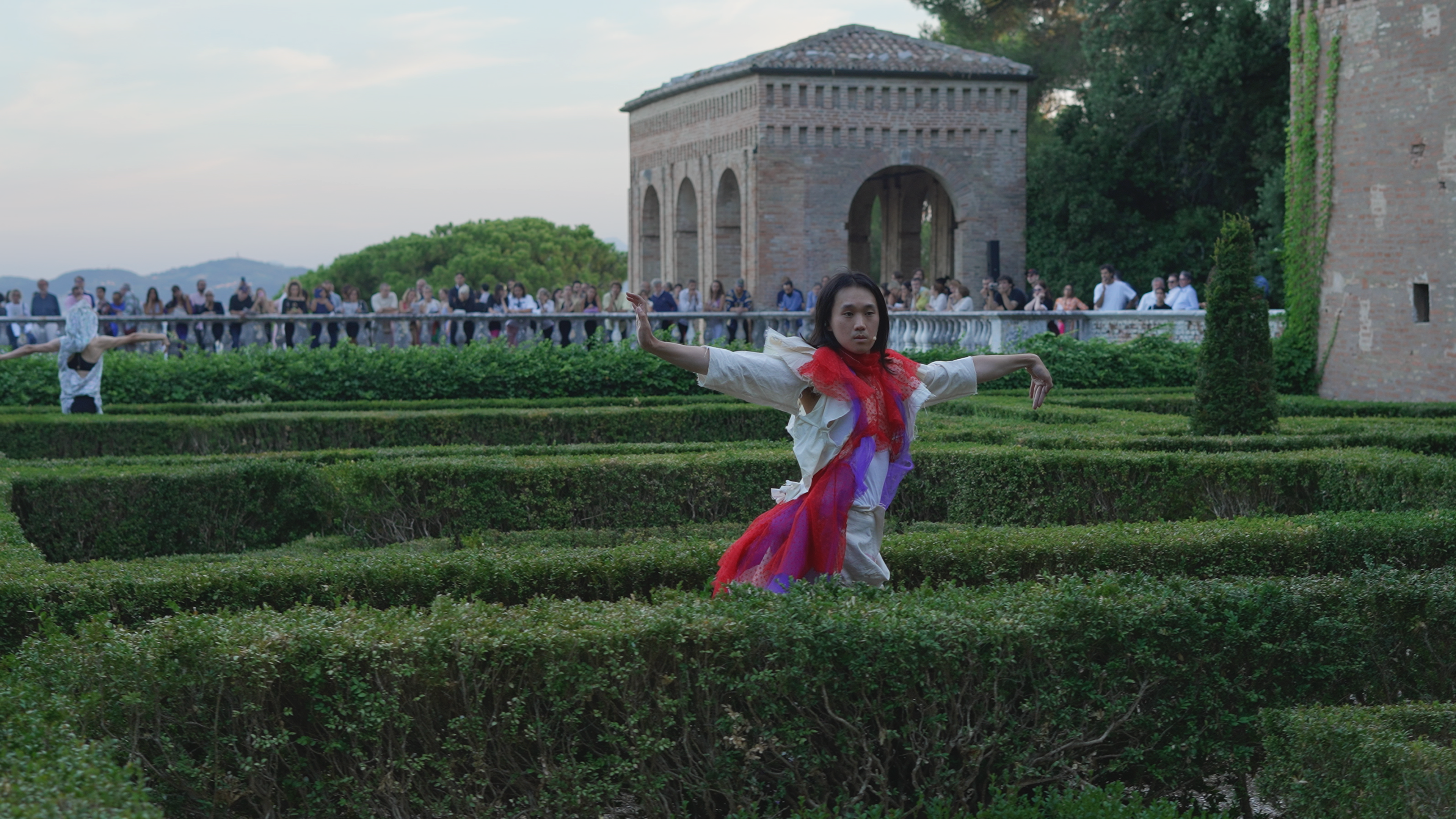
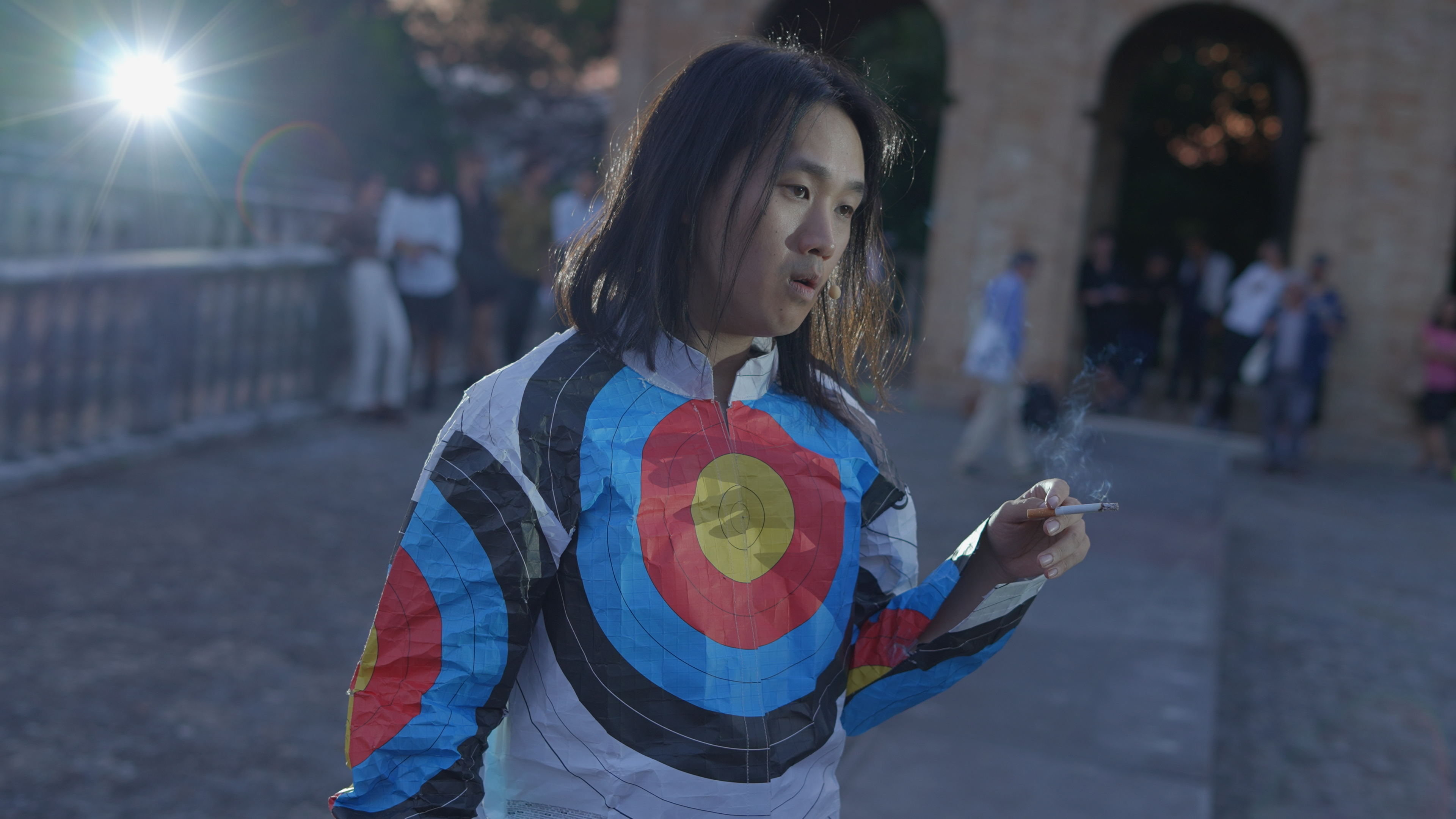
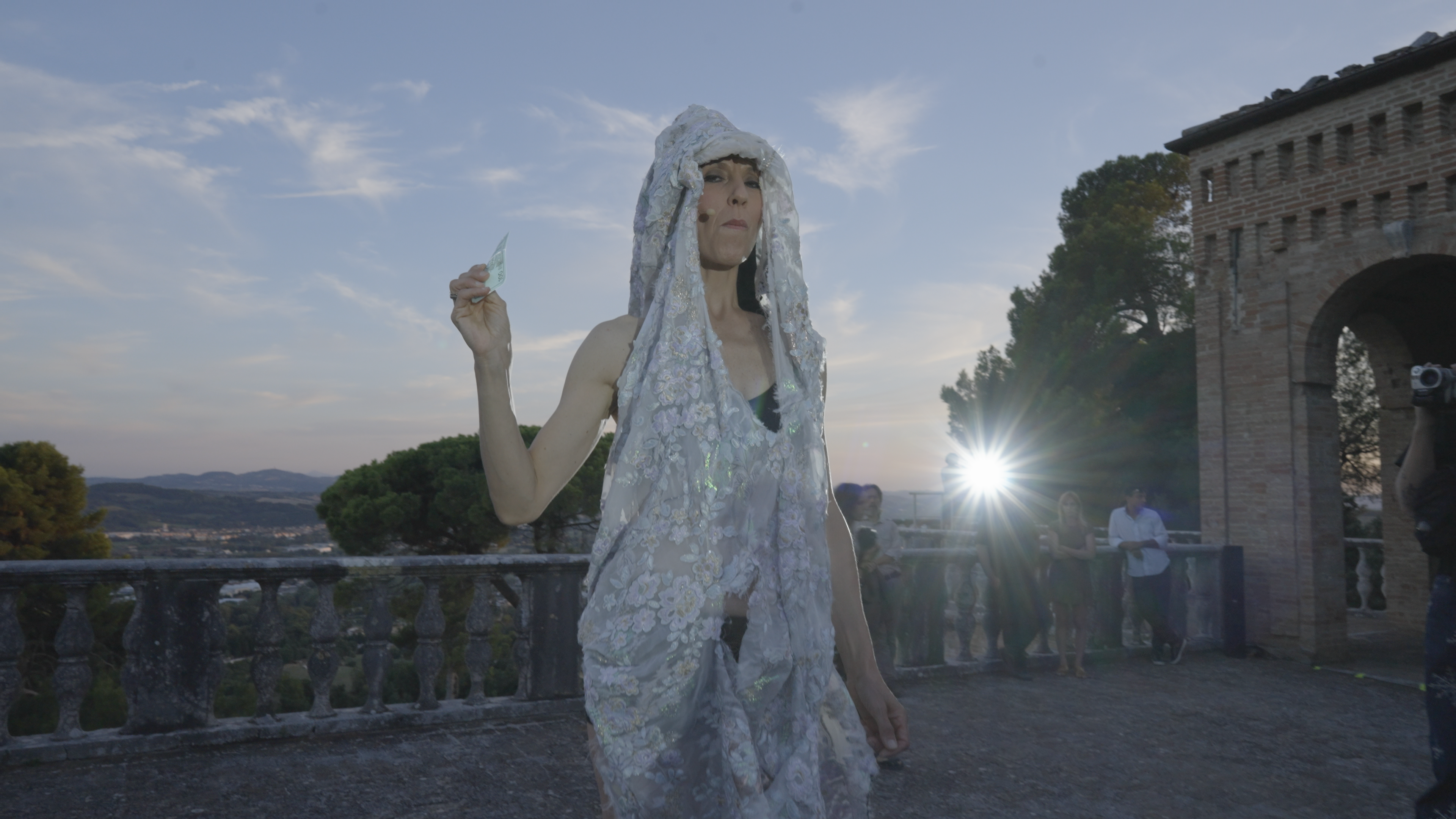
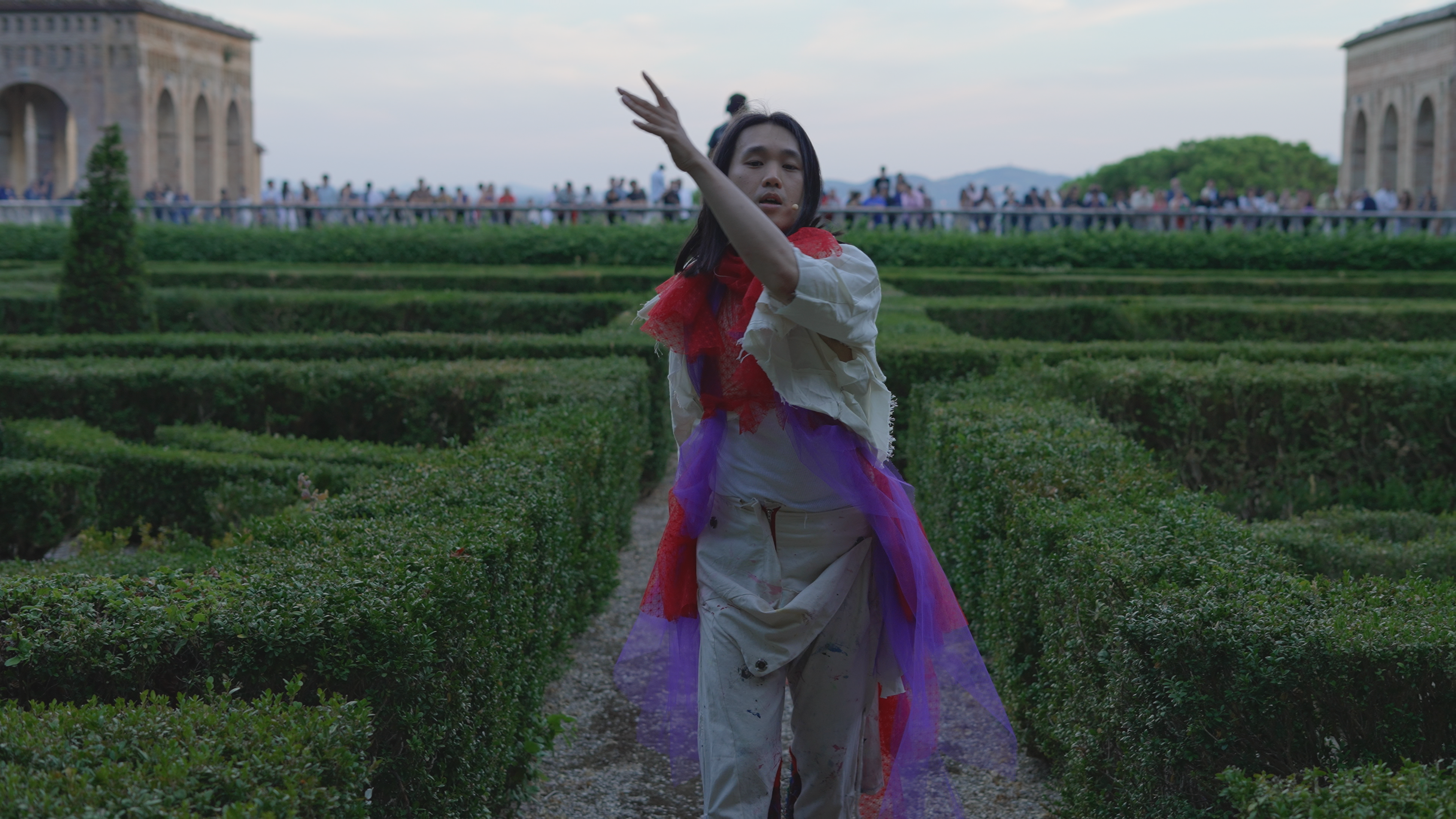
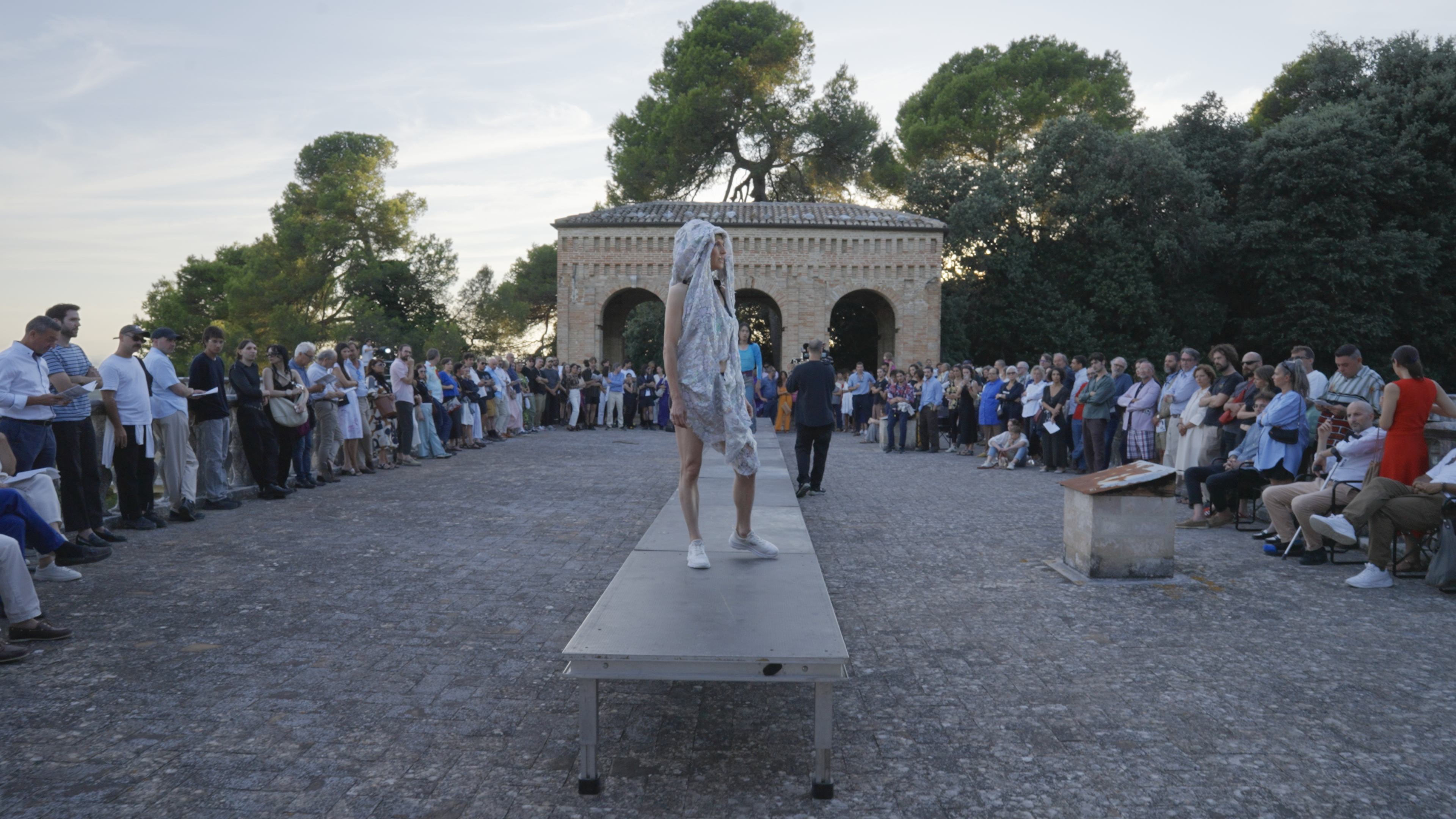
Camera: No Text Azienda
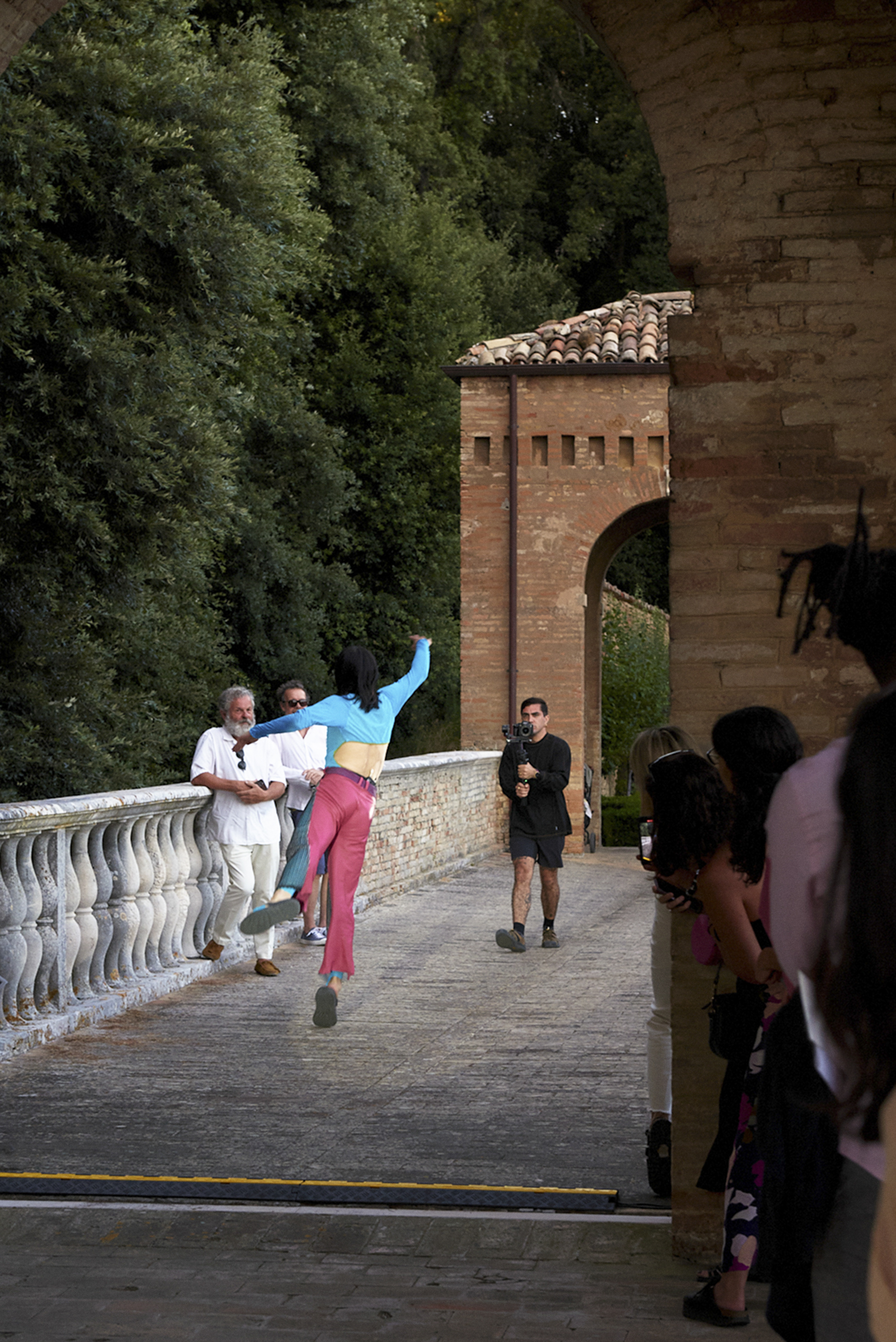

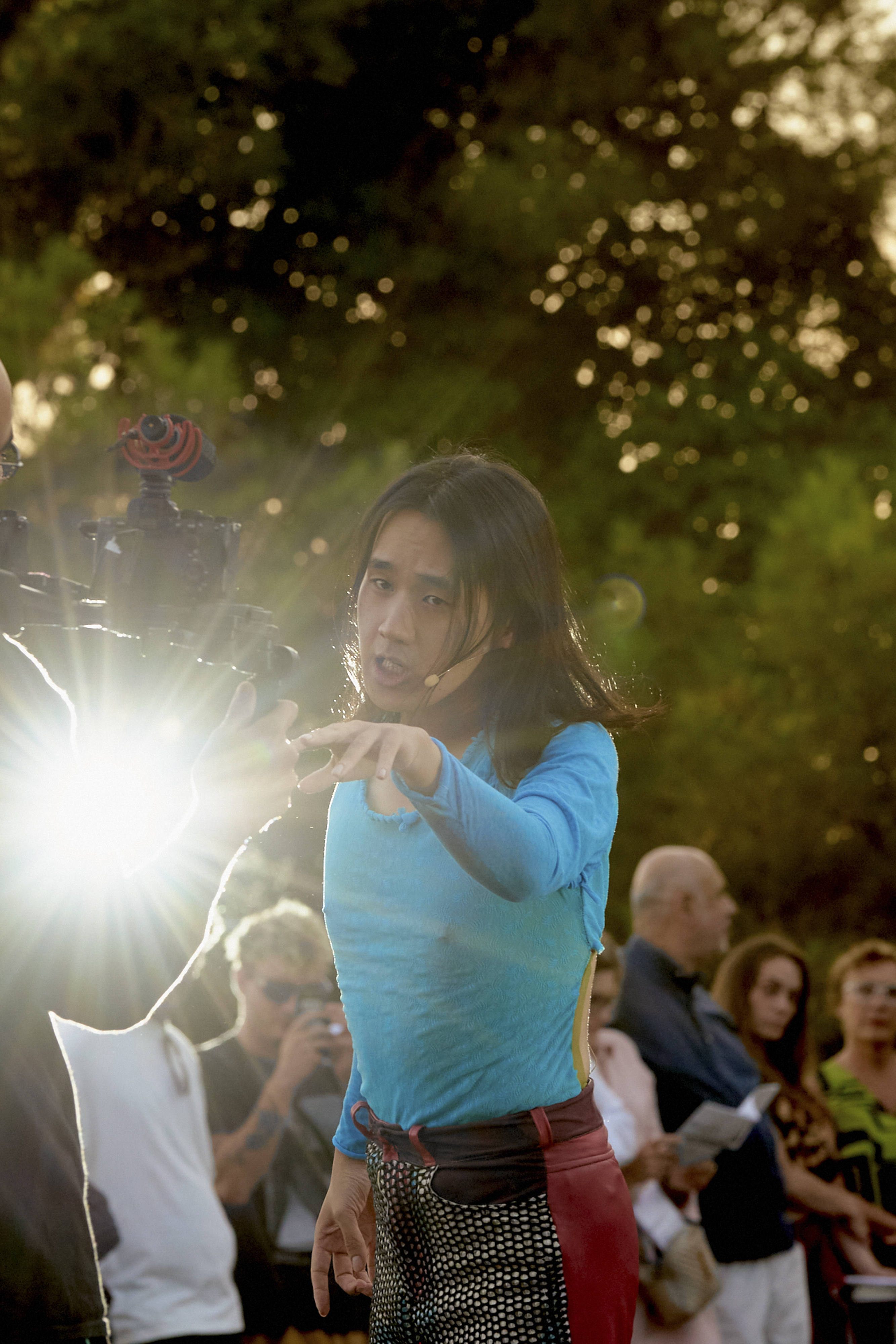
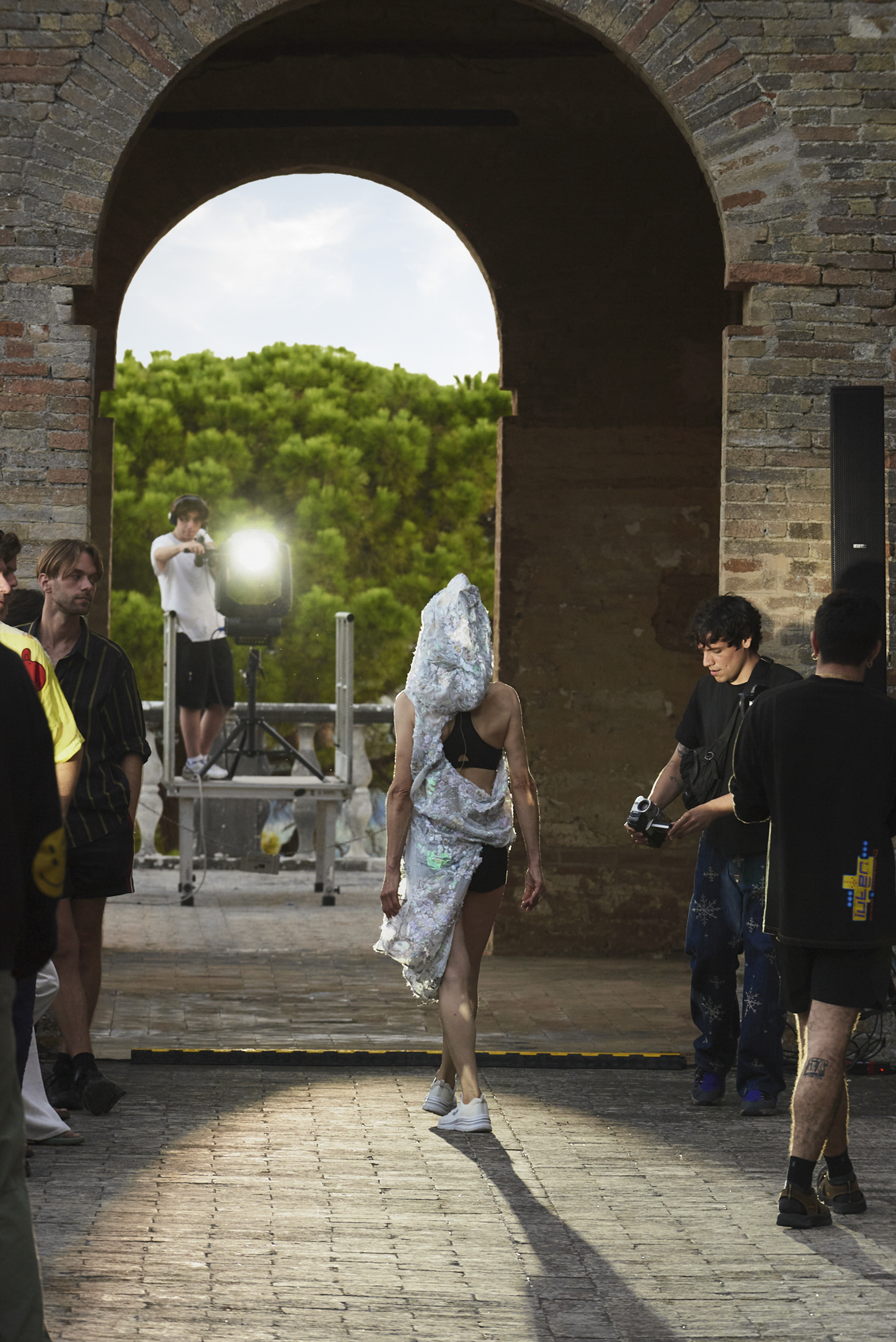
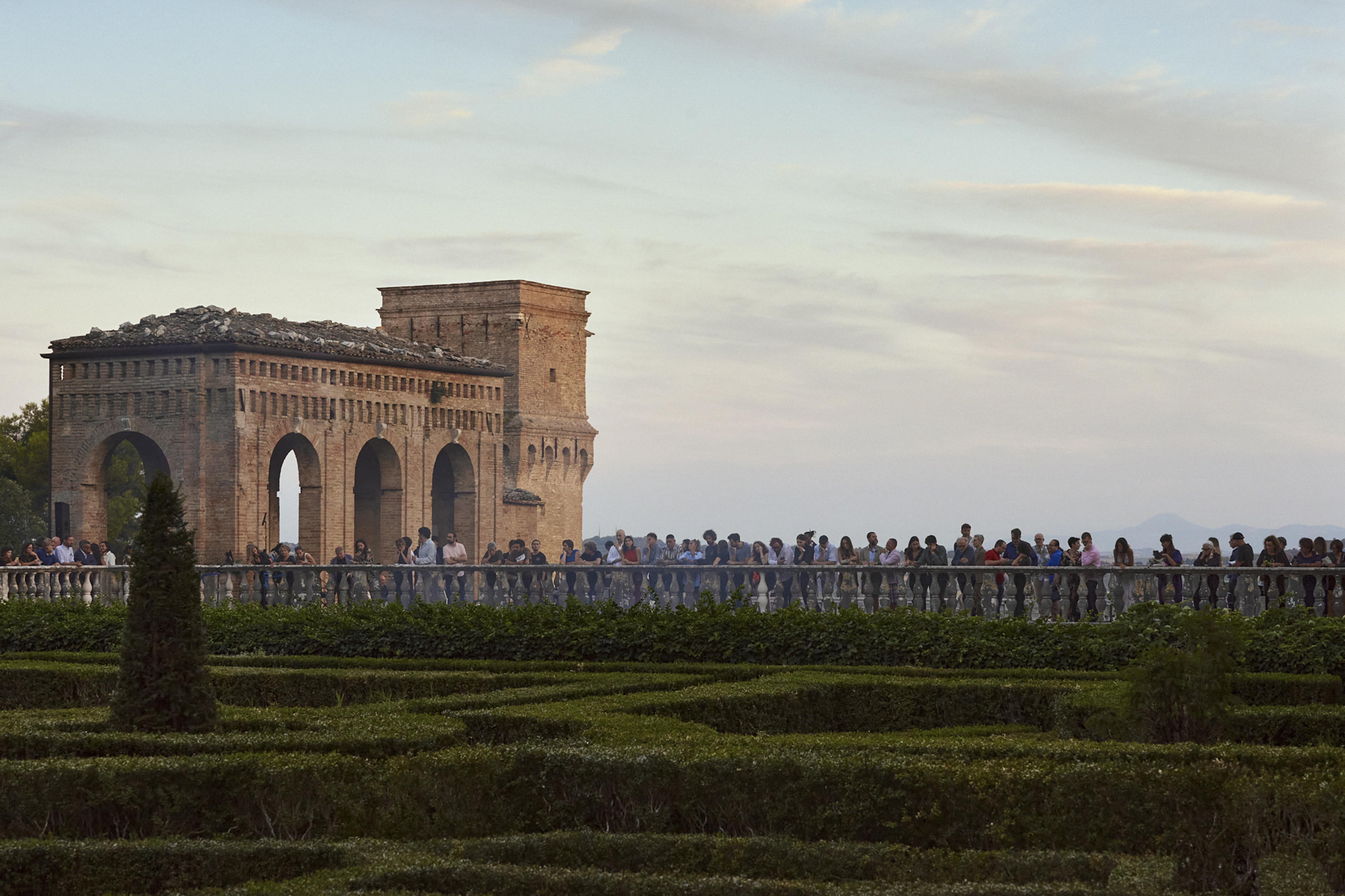
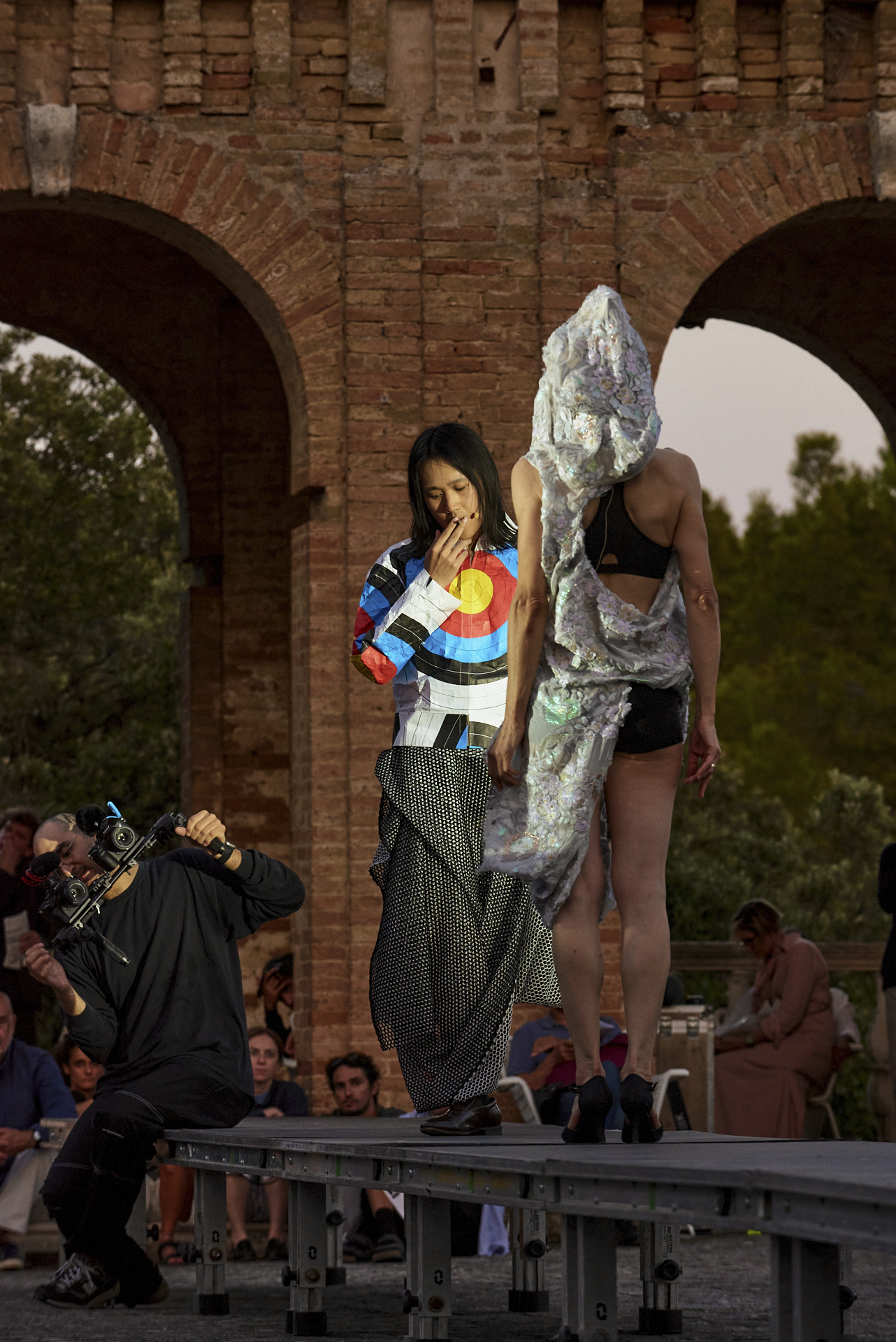
Photo: Stefania Zanetti and Matteo Bellomo